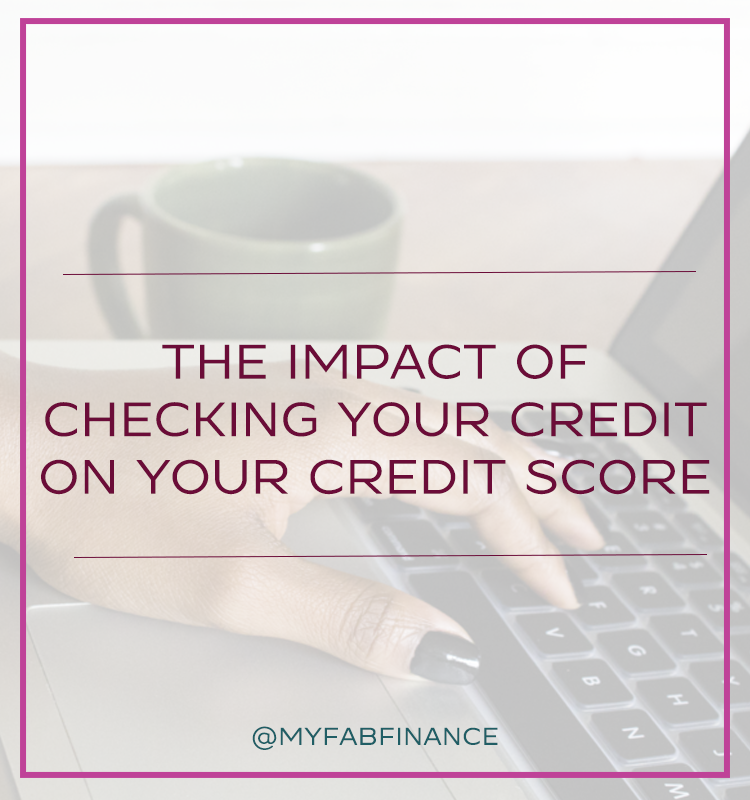Most people assume that checking your credit report negatively affects your credit score, however that isn’t always the case. This concern is warranted whether you have carefully built your credit score to it’s current standing or you are in the process of rebuilding it. It’s important to understand how the the FICO algorithm works and what actions impact your credit score. Credit is like a puzzle and if you are are unaware of how all the pieces work, your score could be negatively affected.
Let’s discuss how checking your credit report can impact your credit score.
Hard or Soft? The Type of Credit Inquiry Matters
When you get your credit pulled it is called an inquiry. There are two types of inquiries, hard and soft. A hard inquiry is when you give authorization for a financial institution to get an updated credit report on you. Generally this is because you are applying for new credit. It is called a hard inquiry because too many of these inquiries, normally 5-8, in a 2 year period will have a negative impact on your credit report.
How many points can a hard inquiry impact your score? It’s difficult to say because everyone has a different credit report. Hard inquiries can drop your score by as little as 3-5 points to 10-20 points.
A soft inquiry doesn’t affect your credit score. A soft inquiry is when a company gets an updated credit report without your written or verbal permission and for this reason they are also called promotional inquiries. Since they don’t have your permission, they can only see a condensed version of your score to determine your creditworthiness. An example of this is when you receive a credit card offer in the mail. They often call these “Pre-Screen” offers. They simply look at the score or very basic information on your credit report.
When you access your own report it is also considered a soft pull.
Obtaining your own credit report does not negatively or positively impact your credit. Click To TweetInquiries remain on your credit report for two years, however they only impact your score for a year.
Understanding The “Rate Shopping” Rule?
“Rate Shopping” is when a consumer is looking for approval on an auto loan, mortgage, or student loan so they may submit several applications in a short time frame. FICO scores do not calculate mortgage, auto, and student loan inquiries made in the 30 days prior to scoring. A consumer may not be approved for the first bank and this allows them to try elsewhere within a 30 day period. If you find a loan within 30 days, the inquiries won’t affect your scores while you are rate shopping. Additionally under the current scoring model some inquiries that fall in a typical shopping period will be packaged and treated as just one inquiry.
Systems & capabilities differ so lenders may use different versions of the FICO scoring software. Click To Tweet
For FICO Scores calculated from older versions of the scoring formula, this shopping period is any 14 day span. For FICO Scores calculated from the newest versions of the scoring formula, this shopping period is any 45 day span.
Do Your Research & Ask Questions
Before anyone pulls your credit, it never hurts to call them before hand or to look online to review their rates and the credit score range they typically approve.
All too often consumers apply for credit for a financial product that has approval standards they don’t meet. Find out what scores are accepted and declined before adding a hard inquiry to your credit report by searching www.whogavemecredit.com.
Why apply at a place with requirements you don’t meet?
Calvin Russell Jr is a Certified FICO Professional, Approved Partner With Bankrate, and the CEO & Founder of GoSimplyPro Credit Consultation. GoSimplyPro Credit Consultation is a Chicago based Credit Repair Company. GoSimplyPro Credit Consultation has helped

You said: